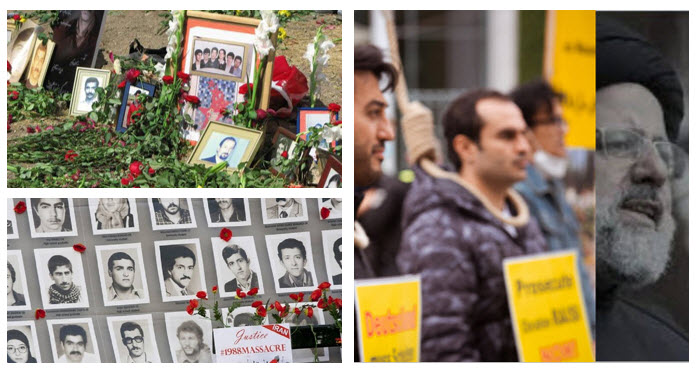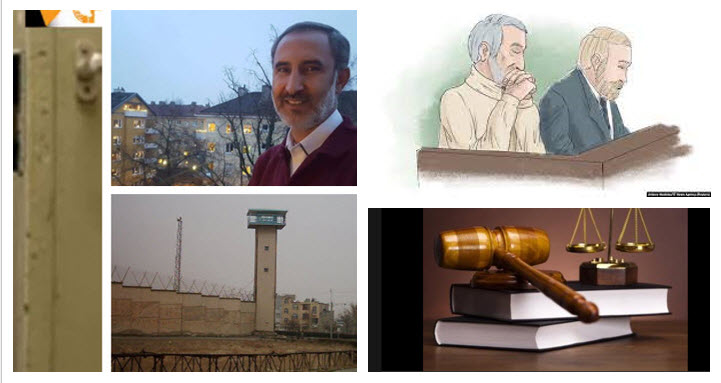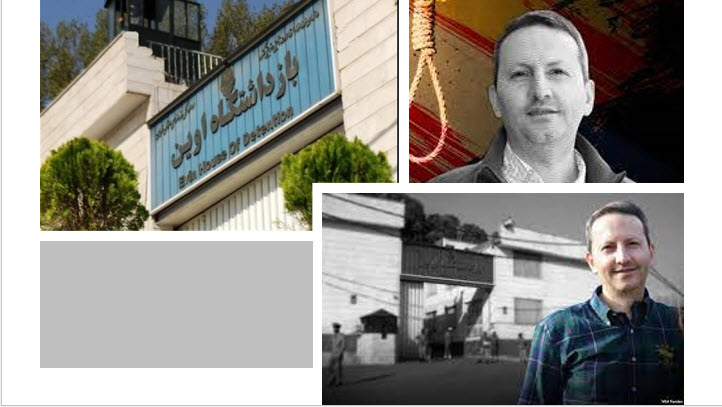
The appeasement policy and refusal to hold Tehran accountable for its crimes at home and abroad were effectively created.
For years, the world has known about Iran’s human rights violations, but international condemnation and even sanctions against the regime have failed to change Iranians’ lives. The appeasement policy and refusal to hold Tehran accountable for its crimes at home and abroad had effectively created systemic impunity for Iranian government officials, and even those caught up in terrorist attacks knew how to safely return home.
However, things began to shift in 2018. Assadollah Assadi, the Iranian regime’s second-in-command in Austria, was arrested in Germany for planning a bomb plot against the Free Iran Rally in Paris. He was tried by the Belgian judiciary and sentenced to 20 years in prison. Due to his active role in the 1988 massacre of 30,000 political prisoners in Iran, Hamid Noury, a former prison guard, was apprehended in Sweden in 2019 and charged with murder and war crimes. The majority of those imprisoned were members and supporters of the People’s Mojahedin of Iran (PMOI/MEK), Iran’s main opposition group.
The Swedish prosecutors highlighted Noury’s role as a henchman in the 1988 genocide during the closing days of the trial, citing the shocking testimonies of MEK supporters and members who had survived the massacre, as well as the prisoners of Marxist groups. The prosecutors have requested that Noury be sentenced to life in prison.
The trial of Noury and his inevitable conviction could be considered a watershed moment in the Iranian Resistance and people’s “Justice Seeking Movement.”

The trial of Noury and his inevitable conviction could be considered a watershed moment in the Iranian Resistance and people’s “Justice Seeking Movement.”
This movement, founded in 1988 by Iranian Resistance leader Massoud Rajavi and revived in 2016 by opposition president Mrs. Maryam Rajavi, calls for the arrest of all criminals involved in the crime, including the regime’s current president Ebrahim Raisi.The Iranian regime is now attempting to overturn the court’s decision through extortion, sensing the serious consequences of Noury’s trial. As the Stockholm court prepared to announce Hamid Noury’s verdict by mid-July, the Iranian regime played its final card: the execution of Ahmadreza Jalali, a Swedish Iranian national who had been held captive in Iran since 2016.
Jalali will be hanged on May 21 on charges of “espionage for Israel,” according to the semi-official ISNA news agency. While on an academic visit to Iran in April 2016, Jalali, a disaster medicine doctor, and researcher, was arrested. His detention, like that of the other dual nationals, is part of Tehran’s extortion strategy.
On Twitter, Swedish Foreign Minister Ann Linde said, “Sweden and the EU condemn the death penalty and demand that Jalali be released.” “This is something we have repeatedly told Iranian officials. Iran has been contacted.”

The execution of Ahmadreza Jalali, a Swedish Iranian national who had been held captive in Iran since 2016. His detention, like that of the other dual nationals, is part of Tehran’s extortion strategy.
This isn’t the first time that Iran’s ruling theocracy has used blackmail as a diplomatic tactic. The regime did the same when Tehran’s diplomat-terrorist, Assadollah Assadi, was about to be sentenced to 20 years in prison in 2020. The famous Iran hostage crisis ushered in the mullahs’ rule in 1979, and hostage-taking quickly became their modus operandi.
Dual nationals have long been used as a scapegoat by Iran’s ruling theocracy to achieve its nefarious goals. To put it another way, Tehran intends to save Noury and stymie the Justice Seeking Movement by any means necessary.
“Another point to consider is that the United States cannot conduct military operations against Iran… If the United States attacks Iran, expect us to capture 1,000 Americans in the first week, for which they will have to pay a billion dollars each. On July 13, 2015, former IRGC Chief Mohsen Rezaei told Iran’s state-run television that “this plan may solve many of our economic problems, but I suggest they don’t think about it.”
To stop the mullahs’ blackmailing, European and international awareness is required, followed by firm action. When Tehran is punished for its terrorism and human rights violations, the world should see how firmness works out. The trial and conviction of Noury are significant, but they are only the first step. Europe must demand greater accountability and hold criminals like Raisi accountable.
MEK Iran (follow us on Twitter and Facebook), Maryam Rajavi’s on her site, Twitter & Facebook, NCRI (Twitter & Facebook), and People’s Mojahedin Organization of Iran – MEK IRAN – YouTu

